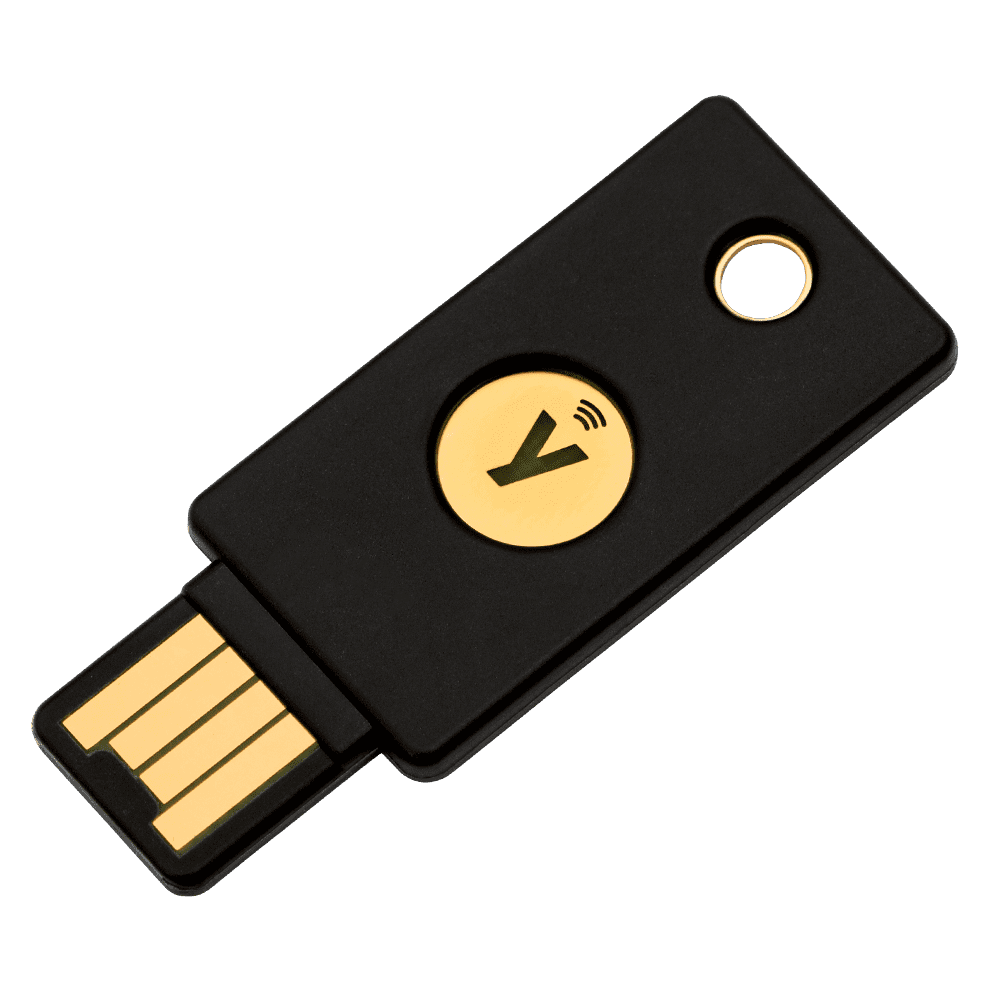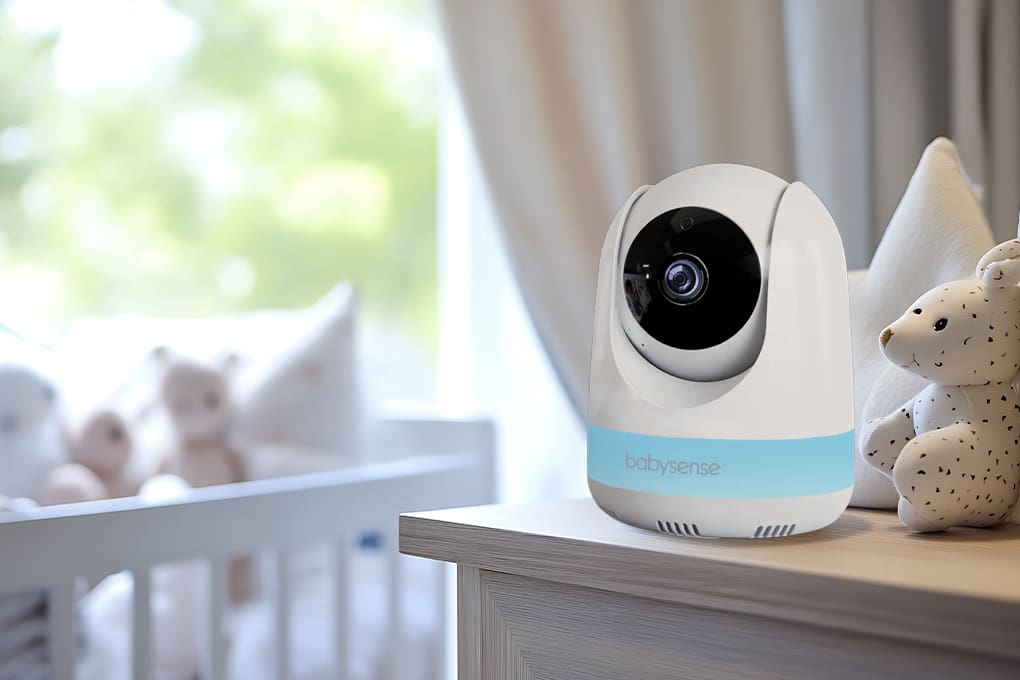Cybersecurity essentials are the fundamental measures and tools that protect small home-based businesses from cyber threats. These essentials form the backbone of your business’s online security, creating a robust defense against malicious actors and potential data breaches.
It is interesting to note that according to a recent survey, over 60% of small businesses think that they are too small to be targeted by cyber attacks. This stands in stark contrast to the fact that in 2021, 61% of small businesses were hit with cyber attacks, costing anywhere between $800 and upwards of $650,000 per attack.
Implementing cybersecurity essentials helps you maintain a secure environment for your business operations, helping you avoid financial losses and other disastrous consequences if your small home business is a victim of a cyber crime.
In this article, we’ll discuss home business security and the steps you need to take to maintain optimal cybersecurity for small business operations. Keep reading to learn how to protect your small home business from malicious cyber attacks.
Let’s start this small business cybersecurity guide by discussing the most common cyber threats to small home-based businesses.
Table of Contents
- Key Takeaways
- Common Cyber Threats to Small Home-Based Businesses
- Benefits of Implementing Cybersecurity Measures for Small Home-Based Businesses
- Cybersecurity Best Practices for Small Home-Based Businesses: How to Secure Your Home-Based Business Network
- Essential Cybersecurity Tools for Small Home-Based Businesses
- How Personal Cybersecurity Protects Your Home-Based Business
- What Is the Best Cybersecurity Solution for Small Home-Based Businesses?
- Cybersecurity for Small Business Operations at Home: Final Thoughts
- Frequently Asked Questions
Key Takeaways
- Small home-based businesses are frequently targeted due to weaker cybersecurity defenses, making proactive measures crucial.Small home-based businesses are frequently targeted due to weaker cybersecurity defenses, making proactive measures crucial.
- Phishing attacks are common and can compromise sensitive information if not addressed through awareness and safeguards.Phishing attacks are common and can compromise sensitive information if not addressed through awareness and safeguards.
- Malware and ransomware pose significant risks to data and operational continuity, requiring robust software defenses and backups.Malware and ransomware pose significant risks to data and operational continuity, requiring robust software defenses and backups.
- Implementing multi-factor authentication, secure networks, and strong password protocols can significantly enhance security.Implementing multi-factor authentication, secure networks, and strong password protocols can significantly enhance security.
- Regular employee training and periodic security audits are essential to prevent vulnerabilities and reinforce good practices.Regular employee training and periodic security audits are essential to prevent vulnerabilities and reinforce good practices.
- Comprehensive cybersecurity tools like VPNs, password managers, and real-time monitoring help ensure consistent protection and reduce risks.Comprehensive cybersecurity tools like VPNs, password managers, and real-time monitoring help ensure consistent protection and reduce risks.
Common Cyber Threats to Small Home-Based Businesses
Cybercriminals increasingly target small home-based businesses due to their often limited resources and less robust security measures.
Understanding common cyber threats is the first step toward strengthening cybersecurity for small business operations. These include phishing attacks, malware, ransomware, and data breaches.
Here’s what you need to know about the most common cyber threats to your small home-based business.
Phishing Attacks
Phishing attacks involve fraudulent emails, messages, or websites designed to deceive users into disclosing sensitive information such as login credentials, financial details, or personal data. Over 57% of organizations suffer from phishing attacks, and an average of $136 is lost per phishing attack, with the number being much higher in many cases.
These messages frequently mimic trusted entities, making them difficult to identify.
Cybercriminals exploit phishing attacks to gain unauthorized access to accounts or systems, potentially compromising your entire operation.
To combat phishing attacks:
- Train yourself and any employees to recognize warning signs like generic salutations, spelling errors, urgent requests, or unexpected attachments.Train yourself and any employees to recognize warning signs like generic salutations, spelling errors, urgent requests, or unexpected attachments.
- Always verify the sender’s identity by cross-checking with official sources before clicking on links or sharing information.Always verify the sender’s identity by cross-checking with official sources before clicking on links or sharing information.
- Implement email filtering tools that flag suspicious messages and enable multi-factor authentication (MFA) for added security.Implement email filtering tools that flag suspicious messages and enable multi-factor authentication (MFA) for added security.
Malware
Malware, or malicious software, poses significant risks by infiltrating systems to steal data, monitor activities, or cause disruptions. It can take the form of viruses, spyware, trojans, or worms and often spreads through infected downloads, malicious websites, or phishing emails.
Protect your home business security against malware by:
- Installing and frequently updating antivirus and anti-malware software across all devices.Installing and frequently updating antivirus and anti-malware software across all devices.
- Exercising caution when opening files or links from unknown sources.Exercising caution when opening files or links from unknown sources.
- Using firewalls to monitor and block suspicious traffic and limiting access to critical systems to prevent malware from spreading.Using firewalls to monitor and block suspicious traffic and limiting access to critical systems to prevent malware from spreading.
Ransomware
Ransomware attacks encrypt your data, rendering it inaccessible until a ransom is paid. Small home-based businesses are particularly vulnerable as they may lack the resources to recover quickly without paying the ransom. These attacks often begin with phishing emails or by exploiting software vulnerabilities.
The statistics surrounding ransomware are quite shocking. Over 59% of organizations were struck with ransomware attacks in 2024. Moreover, ransomware attacks have increased by 13% over the last five years, with an average of $1.85 million lost per attack. Reports indicate that ransomware will cost victims up to $265 billion annually by 2031.
To protect against ransomware:
- Regularly back up data and store copies offline or in secure cloud environments.Regularly back up data and store copies offline or in secure cloud environments.
- Ensure all software and operating systems are up to date with the latest security patches to close potential vulnerabilities.Ensure all software and operating systems are up to date with the latest security patches to close potential vulnerabilities.
- Educate employees on recognizing potential ransomware vectors, such as suspicious downloads or email attachments.Educate employees on recognizing potential ransomware vectors, such as suspicious downloads or email attachments.
Data Breaches
Data breaches occur when unauthorized parties access sensitive business or customer information, often leading to severe financial, reputational, and legal consequences. Breaches can result from hacking, malware, weak passwords, or insider threats.
According to IBM, the average financial loss from data breaches in 2024 was $4.88 million, a 10% increase from 2023.
Prevent data breaches by:
- Enforcing strong password policies and utilizing MFA for all accounts.Enforcing strong password policies and utilizing MFA for all accounts.
- Encrypting sensitive data both at rest and during transmission to reduce the risk of interception.Encrypting sensitive data both at rest and during transmission to reduce the risk of interception.
- Regularly auditing user access to ensure only authorized personnel can view or modify critical information.Regularly auditing user access to ensure only authorized personnel can view or modify critical information.
- Providing ongoing training on secure data handling practices and establishing clear, enforceable security policies.Providing ongoing training on secure data handling practices and establishing clear, enforceable security policies.
Emerging Threats to Consider
In addition to the above threats, small businesses must stay vigilant against evolving cyber risks:
- Distributed Denial of Service (DDoS) Attacks:
- Social Engineering:
- Internet of Things (IoT) Vulnerabilities:
By proactively addressing these common threats, small home-based businesses can significantly improve cybersecurity for small business operations, ensuring continuity and trust. Protecting sensitive data and implementing robust security practices are investments that safeguard both your business’s future and its reputation.
Before we discuss how to secure your home business from cyber threats, let’s discuss the many benefits of doing so.

Benefits of Implementing Cybersecurity Measures for Small Home-Based Businesses
Cybersecurity is a critical component for small home-based businesses. Implementing comprehensive cybersecurity measures provides numerous advantages, safeguarding home business operations, ensuring compliance, and creating trust with clients and customers.
Below are the key benefits, explained in detail, to help you understand why digital security is a priority for your business.
Protecting Sensitive Data
One of the most important benefits of cybersecurity measures is the protection of sensitive data. Small businesses often store customer information, financial records, and intellectual property that are valuable to both the business and malicious actors.
Cybersecurity practices such as encryption, firewalls, and secure passwords prevent unauthorized access to this data.
This mitigates the risk of data breaches and shields your business from potential financial losses and reputational harm caused by compromised information.
Ensuring Business Continuity
Cyberattacks like ransomware or phishing schemes can disrupt daily operations and lead to significant downtime. Implementing cybersecurity measures ensures your systems remain operational even during potential threats.
To put this in perspective, roughly 60% of small businesses go out of business within six months of being victimized by a cyber attack.
By employing regular backups, antivirus software, and secure networks, your business can maintain continuity, minimizing costly interruptions. A stable and safe digital environment allows you to focus on serving customers and driving growth rather than addressing preventable incidents.
Preserving Customer Trust
Customers are increasingly aware of the importance of data privacy. Demonstrating your commitment to digital security shows that you value their confidence and privacy.
When customers see that you safeguard their information, they are more likely to trust your business and continue engaging with your services. This trust can translate into long-term customer loyalty, giving your business a competitive edge.
Avoiding Financial Losses
The financial impact of a cyberattack can be devastating for small businesses. Costs of recovery, legal fees, and lost revenue can quickly escalate.
Cybersecurity measures, such as two-factor authentication and intrusion detection systems, help prevent incidents that might otherwise lead to expensive consequences.
In the long run, the cost of implementing these measures is often far less than the potential losses from a data breach or prolonged downtime.
Meeting Regulatory Compliance Requirements
Depending on your industry, your business may be subject to strict data protection laws, such as HIPAA, PCI DSS, or GDPR. Failing to comply with these regulations can result in severe penalties and legal repercussions.
Cybersecurity measures ensure that your business meets these obligations, reducing the risk of fines or legal actions. Proactively addressing compliance requirements protects your business and demonstrates professionalism and responsibility.
Now that we know why home business security is essential, let’s move on with this small business cybersecurity guide, which will provide you with the best digital security tips for your home business.
Cybersecurity Best Practices for Small Home-Based Businesses: How to Secure Your Home-Based Business Network
Securing your home-based business network is vital for safeguarding sensitive data, ensuring operational continuity, and protecting your reputation. By using firewalls, secure networks, updated software, employee education, and strong passwords, you can help maximize cybersecurity for small business operations.
Here’s how to secure your home-based business.
Use a Firewall
A firewall is a critical first line of defense. It monitors and controls traffic between your internal network and external sources, blocks unauthorized access attempts, and helps prevent cyberattacks.
Most modern routers and devices include built-in firewalls that should be activated for basic protection. However, these default settings might not be sufficient for businesses with more complex needs.
Regularly reviewing and updating firewall settings ensures they align with current security requirements.
Hardware firewalls provide robust protection for those handling highly sensitive data by offering granular control over traffic and customizable security policies. They can be tailored to meet specific operational demands, adding another layer of defense.
Secure Your Wi-Fi Networks
Wi-Fi networks are a common entry point for cybercriminals, so their security should be a top priority. To encrypt transmitted data and make interception difficult, start by enabling strong encryption protocols like WPA2 or WPA3.
Ensure your router password is changed from the default to a strong, unique passphrase consisting of a mix of letters, numbers, and special characters.
Another critical measure is network segmentation. Setting up separate networks for guests or Internet of Things (IoT) devices ensures that your primary business network remains secure even if one segment is compromised. This practice minimizes the risk of unauthorized access and limits the potential impact of a breach.
Educate Employees
Your employees are a key part of your cybersecurity framework. Training them to recognize phishing attempts, suspicious emails, and unusual requests for sensitive information can prevent many common cyberattacks. Regularly update training to address emerging threats and ensure employees understand how to respond appropriately.
Clear security policies should outline acceptable device use, data handling procedures, and protocols for reporting suspicious activity. Ensuring employees adhere to these guidelines reduces human error, one of the most significant contributors to cybersecurity vulnerabilities.
Keep Software Updated
Outdated software often contains vulnerabilities that hackers exploit. Regular updates ensure your systems are protected against known threats. This applies to operating systems, applications, and device firmware.
Automating updates wherever possible reduces the risk of oversight. For manually updated systems, designate a responsible individual or create a schedule to keep your software current. Prompt patching is essential to protect your network from exploits targeting outdated systems.
Use Strong, Unique Passwords
Weak passwords remain a significant vulnerability in cybersecurity. Implement requirements for strong passwords, emphasizing a mix of uppercase and lowercase letters, numbers, and special characters.
Employees should avoid reusing passwords across accounts to prevent a single compromised credential from exposing multiple systems.
Educating employees on password hygiene, such as creating unique passphrases and regularly changing passwords, strengthens your defense against unauthorized access. Clear password creation and maintenance guidelines should be part of your overall security policy. If creating and maintaining secure passwords is an issue, using password managers is recommended.
Regularly Back Up Data
Data loss can be devastating, whether caused by cyberattacks, hardware failures, or accidental deletion. Regular backups are essential for recovering quickly and minimizing disruption. Automating backups ensures consistency and reliability, storing data in secure cloud storage or on external devices.
Backup frequency should align with the importance and volatility of your data. Critical files may require daily backups, while others can be backed up weekly or monthly. Periodically test your backup and restoration processes to confirm that your data can be reliably recovered in the event of an incident.
Monitor for Suspicious Activity
Proactive monitoring is vital to identifying and addressing potential threats before they escalate. Implement logging systems to track access attempts, unusual network activity, and changes in user behavior.
Regularly reviewing logs helps detect anomalies and uncover vulnerabilities in your system.
An incident response plan is equally essential. This plan should detail the steps to detect suspicious activity, including isolating affected systems, investigating the threat, and restoring operations.
Regularly updating and testing this plan ensures your business is prepared to respond quickly and effectively to potential security breaches.
Establish Physical Security
Physical security is often overlooked but is crucial for protecting your network. Ensure that your router and other network devices are placed in a secure location, inaccessible to unauthorized individuals. Locking doors, using cable locks for devices, and restricting access to your workspace can prevent tampering or theft.
Limit Access to Critical Systems
Restricting access to sensitive systems and data is another effective way to secure your network. Only provide access to those who require it for their roles.
Implement role-based access controls to define permissions, ensuring that employees can only access the information and systems relevant to their responsibilities.
Conduct Periodic Security Audits
Regular security audits allow you to evaluate the effectiveness of your cybersecurity measures.
These audits help identify potential vulnerabilities and areas for improvement. Reviewing your network settings, access controls, and backup processes ensures that your security strategies remain effective over time.
Now that we know the best practices for home business security, let’s examine the most important cybersecurity tools for data protection and comprehensive home business security.
Essential Cybersecurity Tools for Small Home-Based Businesses
Investing in the right cybersecurity tools helps protect your small home-based business from cyber threats. These tools work together to create a multi-layered defense, safeguarding your devices, data, and network from various vulnerabilities. Tools such as antivirus software, password managers, VPNs, and MFA tools all help protect your small home-based business.
Here are the most important cybersecurity tools for home-based businesses.
Antivirus and Anti-Malware Software
Antivirus and anti-malware software are crucial in protecting your devices from malicious programs. These tools continuously scan for threats such as viruses, trojans, spyware, and other malware, effectively preventing them from infiltrating your systems and causing damage.
To ensure comprehensive protection, choosing a reputable antivirus solution that offers real-time protection, automatic updates, and regular scans is important. Installing this software on all your business devices, whether computers, laptops, or mobile phones, is essential for maintaining security across the board.
Equally important is keeping your antivirus and anti-malware software up to date. Cyber threats evolve rapidly, and enabling automatic updates ensures you receive the latest virus definitions and security patches to effectively counter new vulnerabilities.
Password Managers
Managing strong, unique passwords for each account is challenging, but password managers simplify this process while significantly enhancing security. These tools securely store and encrypt your login credentials, allowing you to generate and use complex passwords without the need to remember them all.
Leading password managers like 1Password and Dashlane offer features such as password generation, secure sharing, and synchronization across devices. They also alert you to weak or reused passwords, prompting timely updates to maintain better security practices.
By using a password manager, you minimize the risk of password-related breaches. It also eliminates the need to write passwords on paper or store them in unencrypted files, which are common but unsafe practices. This convenience ensures you can focus on securing your business without sacrificing password strength.
Multi-Factor Authentication (MFA) Tools
Multi-factor authentication (MFA) provides an additional layer of security beyond traditional passwords. It requires users to verify their identity using a second factor, such as a fingerprint, a one-time code from a mobile app, or a physical security key.
This approach significantly reduces the risk of unauthorized access. Even if a password is compromised, attackers would still need the additional verification factor, making it much harder to breach accounts.
Hardware security keys, such as Yubikey, are particularly robust MFA options. These physical devices generate one-time codes or require touch for authentication, offering higher security than software-only methods.
Enable MFA on all critical business accounts, including email, cloud storage, and financial services for optimal protection. Many platforms now offer built-in MFA options, making implementation straightforward and accessible.
Backup and Recovery Solutions
Regular data backups protect your business against data loss caused by cyber incidents, hardware failures, or accidental deletions. A well-rounded backup strategy should include local and cloud-based solutions to ensure redundancy and easy data recovery.
Reliable backup software or services can automate the backup process, ensuring the consistent safeguarding of critical business data, such as documents, customer records, and financial information.
Local backups should be stored on external hard drives or network-attached storage (NAS) devices, which should remain disconnected from your network when not in use to protect them from ransomware attacks.
Cloud-based backups offer additional protection by storing data in secure, off-site locations. This redundancy ensures your data is safe even during local disasters or hardware failures.
To maintain confidence in your recovery plan, regularly test your backup and restoration processes. Periodic test restores help verify the integrity of your backups and familiarize you with recovery procedures.
Implement a VPN
A Virtual Private Network (VPN) is invaluable for securing your online activities and protecting sensitive data. By encrypting data transmitted between your devices and the internet, a VPN creates a secure tunnel that shields your business communications from prying eyes.
This encryption ensures that sensitive information, such as login credentials and financial data, remains protected, even if intercepted by malicious actors.
A VPN enables secure remote access to your business network and resources, allowing employees to work safely from any location.
When selecting a VPN provider, prioritize security and reliability. Look for robust encryption, a no-logging policy, and a user-friendly interface to simplify setup and management. A trusted
VPN provider ensures your business network remains secure without compromising performance.
How Personal Cybersecurity Protects Your Home-Based Business
Personal cybersecurity is an important element in protecting your home-based business. The boundaries between personal and professional online activities are often blurred. This overlap makes it essential to ensure that personal devices, habits, and networks are as secure as your business infrastructure.
For instance, if you use the same devices for both personal and business purposes, any vulnerability in your personal cybersecurity can serve as a gateway for cybercriminals to access sensitive business data.
A compromised personal account, weak password, or unprotected device can expose your business operations to threats such as data breaches, ransomware, or phishing attacks.
Furthermore, personal cybersecurity practices such as securing home Wi-Fi networks, using strong and unique passwords, and enabling multi-factor authentication (MFA) create an added layer of protection.
These measures minimize the risk of unauthorized access to both personal and business accounts, ensuring that your financial records, customer information, and intellectual property remain secure.
Adopting comprehensive personal cybersecurity habits also sets a strong example for employees and stakeholders. When everyone involved in the business prioritizes security, it fosters a culture of vigilance that is essential in mitigating cyber threats. Protecting your personal digital space is, ultimately, protecting your business.
What Is the Best Cybersecurity Solution for Small Home-Based Businesses?
The best cybersecurity solution for small home-based businesses is a comprehensive all-in-one system that covers every aspect of digital protection.
With limited resources and time, small businesses benefit greatly from a unified solution that addresses multiple vulnerabilities in one package. Such solutions streamline the implementation process and provide robust protection against the wide array of cyber threats businesses face today.
For instance, providers like Aura and Bitdefender offer extensive cybersecurity features tailored for small businesses. Aura combines identity protection, antivirus tools, password management, and secure VPN access into one easy-to-use platform.
This comprehensive approach ensures protection across devices, accounts, and networks while simplifying management for business owners.
Similarly, Bitdefender provides a user-friendly experience with tools such as malware protection, VPN services, and multi-device coverage, ideal for businesses operating across various platforms.
The appeal of these solutions lies in their ability to integrate critical features like real-time threat monitoring, automatic updates, and encryption, minimizing the risk of oversight.
Furthermore, many providers include identity theft protection and recovery support, which are invaluable in mitigating the financial and reputational damage of cyber incidents.
By investing in a reliable all-in-one cybersecurity solution, home-based businesses can focus on their core operations with the peace of mind that their digital assets and customer data are well protected.
Cybersecurity for Small Business Operations at Home: Final Thoughts
Strengthening cybersecurity for small business operations at home is essential. As cyber threats evolve, small home-based businesses remain vulnerable due to limited resources and security measures. However, by implementing a comprehensive approach, which encompasses threat recognition, proactive defenses, and the right cybersecurity tools, your business can maintain operational continuity, protect sensitive data, and build customer trust.
From addressing phishing attacks and ransomware to securing your home network and educating employees, each step is a critical component in protecting your business’s digital infrastructure.
The right tools, like antivirus software, VPNs, password managers, and multi-factor authentication, ensure multi-layered protection tailored to small businesses. Ultimately, prioritizing home business security safeguards not just your operations but also your clients’ data, your reputation, and your financial future.

Frequently Asked Questions
How Can I Identify Phishing Emails More Effectively?
Phishing emails often have generic greetings, spelling errors, or urgent requests. Always verify the sender’s email domain, avoid clicking on links without confirmation, and enable email filtering tools to flag suspicious messages.
Are Free Antivirus Solutions Sufficient For Home Businesses?
While free antivirus software offers basic protection, small businesses often need more robust features like real-time threat monitoring, multi-device coverage, and automated updates. Paid solutions provide better coverage and support tailored for business needs.
What Cybersecurity Measures Should I Prioritize If I Have Limited Resources?
Focus on implementing a firewall, using strong and unique passwords, enabling multi-factor authentication, and regularly backing up your data. These cost-effective measures provide significant protection for your home business security.
How Often Should I Back Up My Business Data?
Critical files should be backed up daily, while less critical data can be backed up weekly or monthly. Automating the process and storing backups both locally and in the cloud ensures reliable recovery options.
How Does A VPN Protect My Business Activities?
A VPN encrypts data transmitted over the internet, protecting sensitive information like login credentials and customer data from being intercepted. It also secures remote access to your business network, which is vital for small businesses.
Why Is Personal Cybersecurity Important For Business Protection?
Personal devices often overlap with business operations in home-based settings. Weak personal cybersecurity, like unsecured Wi-Fi or weak passwords, can expose your business to cyber threats. Securing personal devices and networks protects both personal and business data.
What Should I Include In A Small Business Cybersecurity Policy?
A cybersecurity policy should outline password guidelines, acceptable device use, secure data handling procedures, and protocols for responding to threats.




